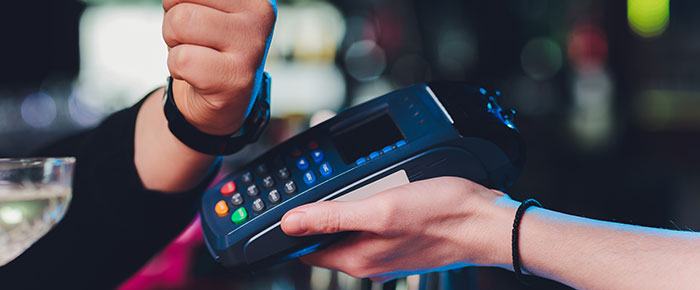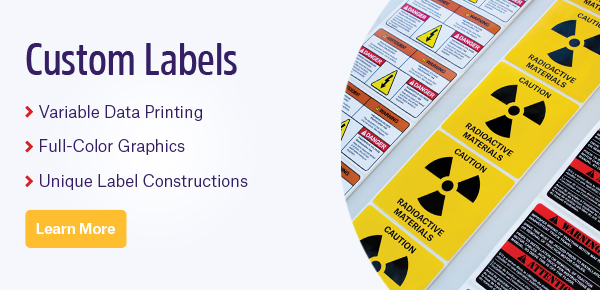 Barcodes are essential to properly track your company’s inventory and supply chain manufacturing, trace shipping orders, and much more. As such, they’re found everywhere, from automotive and aerospace manufacturers to oil and gas plants, Radio-frequency identification (RFID) is one of the fastest developing technologies in the field of identification. It offers many advantages over using barcodes to identify items, such as the ability to scan multiple items simultaneously without a direct line-of-sight, more security, and the possibility of encoding tags multiple times. Because of its adaptability, many are finding new and exciting ways to use RFID technology, by integrating it into their workflow to increase productivity, reduce costs, and safeguard their resources.
Barcodes are essential to properly track your company’s inventory and supply chain manufacturing, trace shipping orders, and much more. As such, they’re found everywhere, from automotive and aerospace manufacturers to oil and gas plants, Radio-frequency identification (RFID) is one of the fastest developing technologies in the field of identification. It offers many advantages over using barcodes to identify items, such as the ability to scan multiple items simultaneously without a direct line-of-sight, more security, and the possibility of encoding tags multiple times. Because of its adaptability, many are finding new and exciting ways to use RFID technology, by integrating it into their workflow to increase productivity, reduce costs, and safeguard their resources.
In-Store Traffic Monitoring
Retail stores are a perfect location to implement RFID to monitor traffic. This type of system is much more valuable to retail companies with large customer-based stores (like Costco or grocery stores). Monitoring store traffic is especially useful for in-store management. By adding RFID chips to things like shopping carts, a ton of additional information can be obtained, such as the most frequented areas of the store, how customers peruse inside the store, and how long they shop for. This data can be correlated with actual sales to provide crucial insights into customer behavior.
Wristbands
Hospitals and clinics, concert venues, and day camps are among those that frequently rely on wristbands to identify patients and attendees. The advantages of RFID are probably most prominent at hospitals, where patients and their medical information must be accurately accounted for, from their date of birth and allergies to their medication regimens. Patients with dementia are of particular concern, and RFID can provide a tracking system that can instantly verify the presence of every patient on the floor. At concert venues, RFID provides a fast way of scanning customers and assessing crowd traffic throughout the venue. For camps, RFID can be used as added security to verify the presence of every child throughout the day, preventing mishaps from occurring, and making sure only appropriate guardians (e.g. parents) collect their kids at the end of the day.
Robbery-Proof Inventory
Theft is a plague on the retail industry, and there’s no better way to combat it than using RFID technology. The trick is to integrate the chips directly into the item so that they are invisible to the perpetrator and cannot be removed. The best example of this is in casinos, where some have resorted to inserting RFID chips directly into poker chips. Poker chip thieves usually steal chips to be sold outside the casino, where they can then be brought back in and cashed out. In such instances, RFID has two advantages: it immediately alerts the casino to the theft and renders the chips inactive, so they can’t be sold back to the casino any longer. One such case occurred at the Bellagio, where $1.5 million in stolen chips were rendered useless upon leaving the building. This same system can theoretically be used in any retail store to safeguard inventory.
Change Rooms
Change rooms can be messy affairs, with lineups of people waiting to try on multiple items, often of varying sizes. This confusion can often lead to missing or stolen items, especially during busy holidays. With an RFID-based system, tagging every item with a chip can allow employees to instantly verify the identity and number of items per change room. Once the customer is finished, they can also confirm all items are either paid for or given back, with full visibility throughout. Again, this type of system can be combined with an in-store RFID monitoring system to keep tabs on customer behavior as they shop.
Food storage temperature monitoring
Food storage can be extremely sensitive, as even minor fluctuations in temperature can unintentionally lead to spoiled food, which is hazardous to consumers. Many are resorting to RFID temperature-sensitive chips that keep track of the temperature of frozen foods, yielding a record of temperature fluctuations and alerting the user if the temperature deviates too far from its intended target. This type of system has even been used to formally test shipping methods, with a study published by Trebar et al in the Journal of Food Engineering regarding the use of RFID technology in the fish industry. In the study, they monitored the temperature inside and outside the packing box, as well as inside the fish, with RFID tags; this eventually led them to identify a novel way of packaging fish that was more efficient than seven other methods.1
Tool Self Check-Out
Tools are notoriously difficult to manage, no matter what sector you work in, from construction and oil and gas worksites to farms and retail stores. They can often become unaccounted for and, as such, get lost or stolen. With RFID-based systems, it’s possible to affix tags or labels to each tool or piece of equipment and install a system that instantly checks out the item as it’s removed from storage. On work sites, a single scan can reveal the identity of all tools and equipment, as well as their location, instantly alerting the user to any missing items.
RFID has come a long way since its inception more than 50 years ago. New ways of using the technology are constantly being found, especially now that it’s possible to integrate RFID chips into any type of label, from chemical- and heat-resistant labels to those that resist extreme cold. With the high adaptability and trackability of RFID chips, their uptake into the commercial sector is now greater than ever before.
Reference:
Trebar M, Lotric M, Fonda I. Use of RFID temperature monitoring to test and improve fish packing methods in styrofoam boxes. J Food Engineer. 2015;159:66-75.

